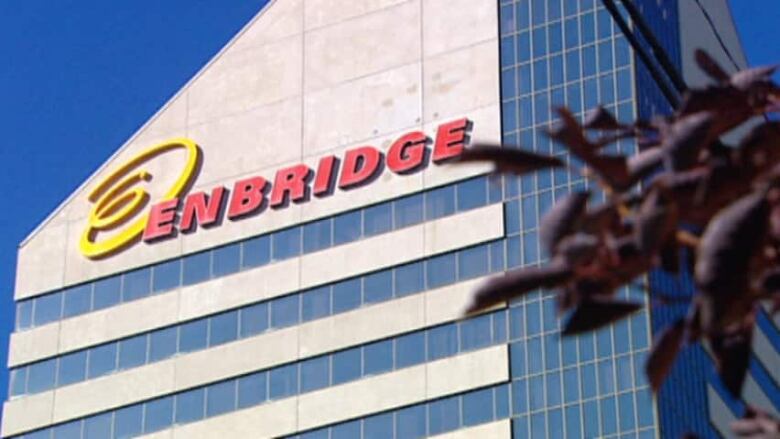Gallant carbon-price plan at odds with feds on natural gas, too
Liberals say federal government will come to accept New Brunswick approach

The New Brunswick government is acknowledging that its proposed price on carbon falls short of another of Ottawa's climate plan requirements.
Federal Environment and Climate Change Minister Catherine McKenna has already said Premier Brian Gallant's plan to shift an existing stream gas-tax money into a climate fund is not good enough and could require her to step in.
Now, provincial officials are admitting that Gallant's carbon-tax exemption for natural gas customers is also at odds with the federal plan.
But they say they believe the Trudeau government will eventually give them a pass on that, too, and opt against imposing its own carbon tax on natural gas in New Brunswick.
"The provincial government is confident that as the federal government undertakes its study of provincial pricing regimes over the next year that they will come to the same conclusion that we have," department spokesperson Marc André Chiasson said in an email.
Exemption details
The province's carbon price will see 2.3 cents of the 15.5-cent gas tax shifted into a climate fund starting in the 2018-19 fiscal year. The share of the gas tax being diverted will grow each year.
The plan also includes an industrial levy to be paid by large emitters if they don't reduce emissions relative to their counterparts in the same sectors.
According to a provincial background document, "all other fuels" are exempt from the new carbon levy, "including fossil fuels used in … providing heat and hot water to buildings (residential and commercial)."
Chiasson confirmed that includes natural gas.
But a federal technical paper on its carbon-price requirement says a carbon levy will "become payable" by natural-gas retailers when the gas "is delivered to a final user … e.g. delivered to residential homes."
But technical paper on federal backstop (what Ottawa will impose if provinces don't) says natural gas retailers must pay a levy when it is "delivered to a final user." <a href="https://t.co/5ekKEKxKqR">pic.twitter.com/5ekKEKxKqR</a>
—@poitrasCBCFeds will step in
Ottawa says it will impose its own carbon-price plan or parts of its plan, known as the federal backstop, on any province that doesn't live up its requirements.
Chiasson admitted that's a possibility.
"Yes, if the federal government decides to apply their federal backstop in New Brunswick, then all fuels will be included, including natural gas," he said. "But the made-in-New Brunswick plan only includes gasoline and diesel."
Chiasson said there aren't enough natural gas customers in the province to justify the cost of administering a tax on the fuel.
"To impose an entirely new levy regime to close a small gap in coverage between us and the federal government would require significant additional effort for minimal return," he said.

There are about 8,200 residential natural gas customers in New Brunswick and fewer than 12,000 in total.
Enbridge Gas New Brunswick, the main gas retailer in the province, would not comment on the disparity between the two carbon-price plans because the regime is not finalized.
Spokesperson Sara Gourley said parent company Enbridge Inc.'s position is that a carbon price is "an important mechanism for influencing energy consumption and the achievement of Canada's GHG emissions reduction goals."
Non-compliant
Green Party Leader David Coon said the natural gas exemption goes against the national climate agreement Gallant signed in 2016.
"The notion is, the less you pollute, the less you pay," Coon said. "This government is out of compliance in so many ways with the agreement they made with Ottawa and the other provinces on tackling climate change. This is just another one."

In a written statement last month, McKenna said Gallant's plan to shift gas-tax money to a climate fund "does not create a new incentive to cut carbon pollution." She said the goal was to change consumer behaviour "by sending a price signal that wasn't there before."
McKenna's statement didn't address the taxation of natural gas. Her department did not respond to a request for comment this week on that specific point.
The federal minister said provinces have until Sept. 1 to submit their plans for an assessment of whether they meet the national standards. Ottawa will impose its backstop on provinces that fall short on Jan. 1, 2019.
"The premier is essentially taking the position that we're going to let Ottawa do carbon pricing for New Brunswick instead of New Brunswick doing it for itself," Coon said.
The Progressive Conservative Opposition in New Brunswick says the timeline allows Gallant to avoid new taxes before the Sept. 24, 2018, election. The PCs predict that if Gallant is re-elected, he'll then decide to comply with Ottawa's requirements.
In his email statement, Chiasson called the provincial plan "a good starting point that allows for a managed introduction of carbon pricing in our province."

